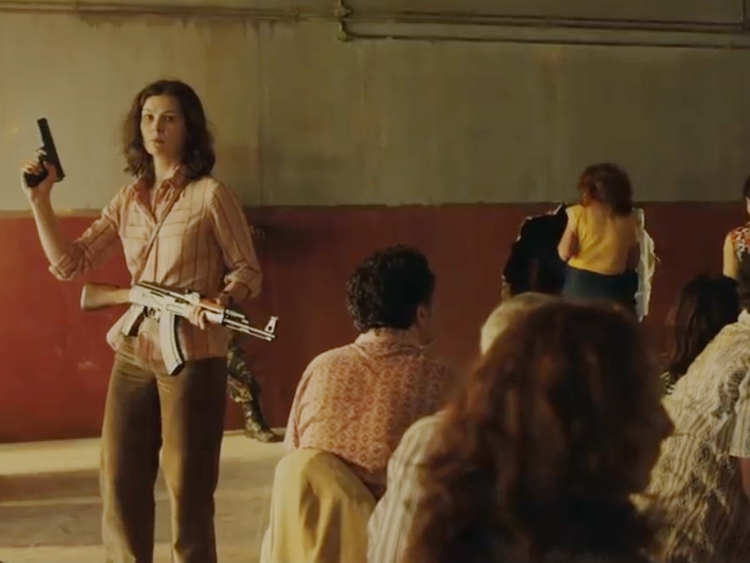
The “counter-terrorism” plot seems more far fetched than many action thrillers, yet 7 Days in Entebbe, which premiered at the Berlin film festival on Monday, claims to depict a real-life airline hijack drama.
The movie recounts the so-called audacious hostage rescue mission ever staged, the Israeli occupation regime’s 1976 Operation Thunderbolt in Uganda, but aims to be more than a tale of military heroism.
Instead Brazilian director Jose Padilha (Narcos) explores the harrowing events from multiple perspectives: that of the hijackers and their hostages, and of the leaders of the regime in Tel Aviv forced to decide whether to negotiate or fight.
Several previous movies, said Padilha, had depicted “a gigantic military feat and ignored the interaction between the hostages and their hijackers and the political aspects in Israel”.
Padilha, a previous Berlinale winner for Elite Squad, said he had met former hostages, flight crew and Israeli political and military veterans to get beyond the “standard military narrative”.
The battle between Israel’s then prime minister Yitzhak Rabin and the even more hawkish defence minister Shimon Peres illustrated why there is still no Middle East peace, said the director.
The hijacking of a Paris-bound Air France flight from Tel Aviv was a joint plot of the Palestinian resistance fighting to end the Israeli occupation of their country and their far-left German backers, who saw themselves as anti-imperialist revolutionaries.
The hijackers — the two Germans are portrayed by Daniel Bruehl (Good Bye, Lenin!) and Rosamund Pike (Gone Girl) — took over the flight after an Athens stop-over.
After a refuelling stop in Muammar Gaddafi’s Libya, they headed to Entebbe, Uganda, then ruled by brutal dictator Idi Amin, who is described in the film as a “lunatic” who feeds his enemies to crocodiles.
Peres puts together a plan involving 100 commandos in under-the-radar flights who launch a surprise raid using a fake presidential limousine.
On day seven, the special forces shot dead all the kidnappers and scores of Ugandan troops while rescuing all but four of the remaining 106 hostages.
The only Israeli soldier killed was unit commander Yonatan Netanyahu, the elder brother of Israeli Prime Minister Benjamin Netanyahu.
On their way out, the Israeli occupation regime’s forces blew up Uganda’s fleet of Soviet MiG fighters, although the film does not depict the fiery end of the operation, instead interspersing the battle scenes with a dance choreography.
The new version, based in part on testimony from flight engineer Jacques Lemoine, shows Boese deciding against massacring the Jewish passengers before he goes down in a hail of bullets.














